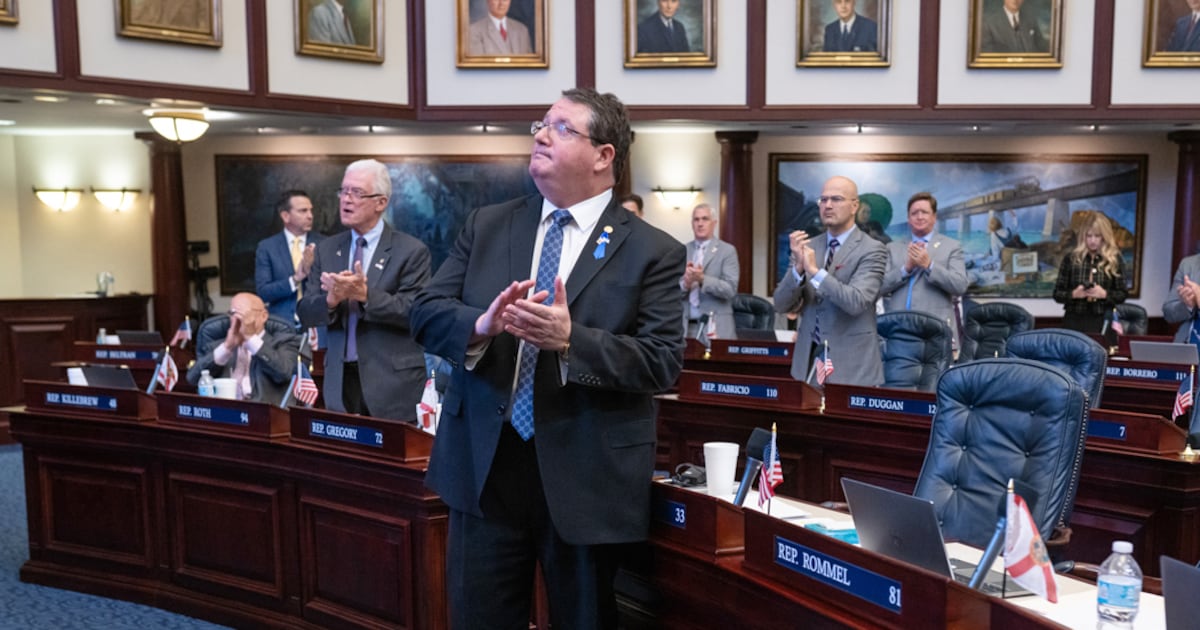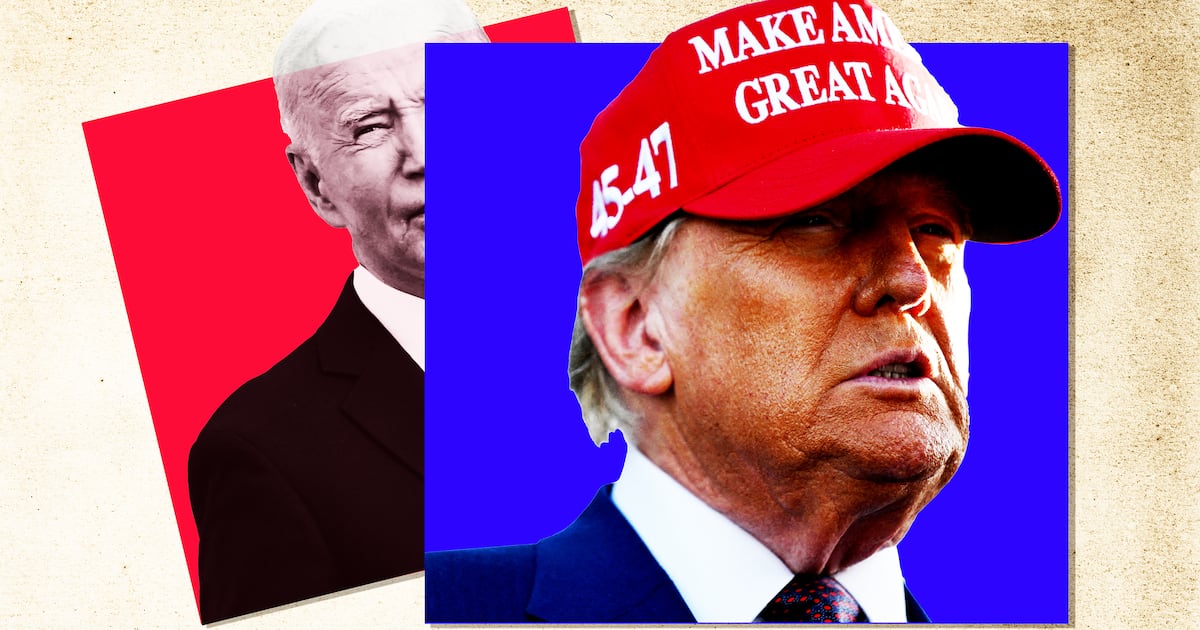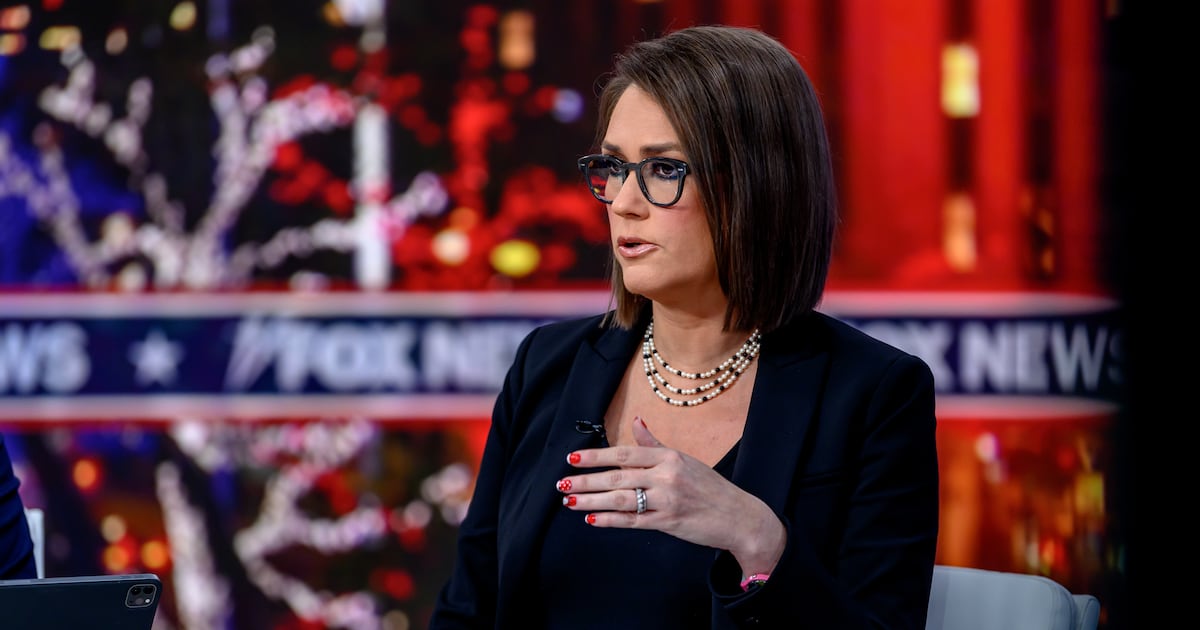A major multinational company spotlighted at a White House “Made In America” event on Monday recently laid off thousands of U.S. workers and is under Trump administration investigation over alleged tax-dodging.
It’s true that construction and farming equipment manufacturer Caterpillar stores its replacement parts in Peoria, IL, where the company is headquartered, but its parts business is owned by a Swiss subsidiary, and profits derived from that business are not subject to U.S. taxes.
The arrangement has led to allegations of tax-dodging, and triggered federal investigation into the company, which denies any wrongdoing. Wilbur Ross, President Donald Trump’s Commerce Secretary, has described the investigation—and its larger crackdown on unfair trade practices—as a part of the administration’s “America First” economic policy approach.
ADVERTISEMENT
The White House press office did not respond to questions about those allegations and how they squared with the message of what the White House is calling Made in America Week. Caterpillar also did not respond to a request for comment.
“Under the leadership of President Donald Trump, not only will the American worker never be forgotten, but they will be championed,” White House director of media affairs Helen Aguirre Ferre said in a statement on Sunday announcing the kickoff of the week’s events.
The White House is hosting a company from each US state at its Monday event. Caterpillar is there representing Illinois. One of its construction vehicles was rolled out onto the South Lawn on Monday for the occasion.
Trump lavished praise on Caterpillar during the 2016 presidential campaign, and blamed the company’s financial woes on cheap Japanese competition.
Those woes had just resulted in large layoffs at the company. In September 2015, Caterpillar announced forthcoming workforce reductions of between 4,000 and 10,000 employees and the closures of several of its US manufacturing plants.
Still, the company maintains a significant U.S. manufacturing presence, hence its prominent role at Monday’s event. But despite its domestic business activities, Caterpillar has structured its business using offshore entities that reduce its federal tax burden. Those practices have resulted in a federal investigation vigorously pursued by the Trump administration.
In March, federal authorities raided Caterpillar’s Peoria headquarters as part of an investigation into that scheme, which, according to a 2014 Senate investigation, has allowed it to skirt more than $2.4 billion in U.S. taxes.
According to the Senate investigation, Caterpillar paid consulting firm PricewaterhouseCoopers to develop the contested tax strategy. Under the plan, Caterpillar transferred ownership of the spare parts for its construction and farming equipment to a Swiss subsidiary called CSARL. The parts are still stored in Peoria, but all orders for those parts are placed with CSARL, which reports its profits—and pays taxes on those profits—in Switzerland. CSARL never takes physical possession of those parts, but on paper they are all Swiss-owned.
During a 2011 deposition, a former Caterpillar tax manager was asked whether there was “any business advantage to Caterpillar, Inc., to have this arrangement put into place other than the avoidance or deferral of income taxation at higher rates.”
“No, there was not,” the manager replied, before Caterpillar’s attorney suggested they “take a break.”
The company is cooperating with the federal investigation into those practices, but “vigorously contesting” any allegations of wrongdoing, it said in its 2016 annual report. The investigation began under President Barack Obama, but Trump’s administration has kept up the heat on the company.
Ross confirmed at the time that the raids were part of a joint investigation by Commerce, the IRS, and the Federal Deposit Insurance Corporation. "The Commerce Department has enforcement responsibilities both on imports and on exports, so it's an important part of our function,” he told CNBC. "We’re going to be even stricter on enforcement, particularly on inbound goods that shouldn’t be.”
Trump has proposed corporate tax reform efforts that he says will discourage that type of arrangement, allowing—and encouraging—more companies with operations in the U.S. to compete globally.
It’s part of a strong White House push for policies that Trump says will prioritize American workers. But on key policy positions, Trump differs markedly from Caterpillar. The company was a major proponent of the Trans-Pacific Partnership, a wide-ranging Asian free trade deal that Trump scuttled shortly after taking office.
More recent Trump administration trade actions could also hurt Caterpillar’s bottom line. The company is a major buyer of steel products that could see significant price bumps as a result of efforts by Commerce and other parts of the administration to crack down on foreign steel importers.
Some of Trump’s campaign promises looked like a win for Caterpillar. Market opportunities in his proposed border wall and infrastructure spending packages were particular bright spots, but neither have materialized at the rate that some U.S. manufacturers hoped.
So while Caterpillar will be front and center in the White House’s Made in America Week, the prospect of continued tension with Trump policy proposals remains.
As chief executive Doug Oberhelman said in December, "I have been a little concerned about some of the rhetoric.”






